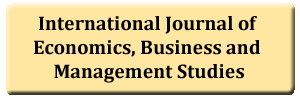Challenges of employing unformalized skills: Recognizing and leveraging informal expertise for national development in Tanzania
DOI:
https://doi.org/10.55284/ajssh.v9i2.1186Keywords:
Formal skills, Formal certification, Informal skills, Learning certification, National development, Practical experience.Abstract
This paper explores the challenges and implications of informal skills acquisition in Tanzania and its impact on national development. Through two case studies—one focusing on a driving class and the other on an electrical technician—it highlights the tension between formal certification and practical experience. The findings reveal that informal skilled laborers, while highly proficient, face significant barriers to employment, market competition, and project tendering due to the absence of formal recognition and certification. Despite their lack of formal qualifications, these workers contribute meaningfully to their families, communities, and the national economy. The study underscores the critical gap in valuing informal expertise relative to formal qualifications, and it advocates for the re-evaluation of the certification system to better recognize and leverage informal skills. The paper argues that integrating informal skills into the formal economy is crucial for inclusive national development. It calls for a Recognition of Prior Learning (RPL) system to validate experiential learning and create alternative, affordable certification pathways. This approach would not only level the playing field for informal workers but also enhance their ability to compete in national projects alongside formally educated professionals. By acknowledging and supporting informal expertise, Tanzania can build a more robust, versatile workforce that is better equipped to meet the demands of various industries, ultimately driving sustainable national development.




